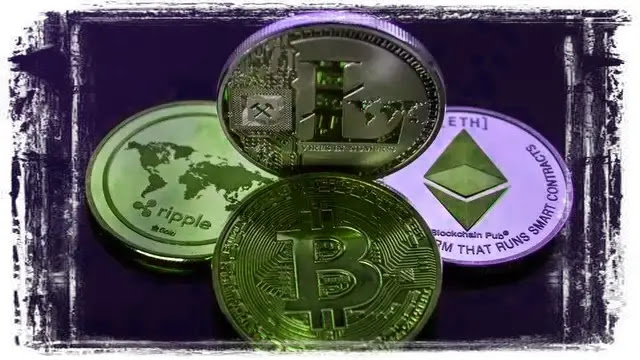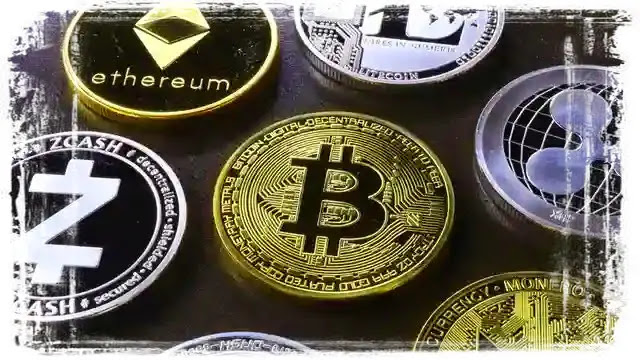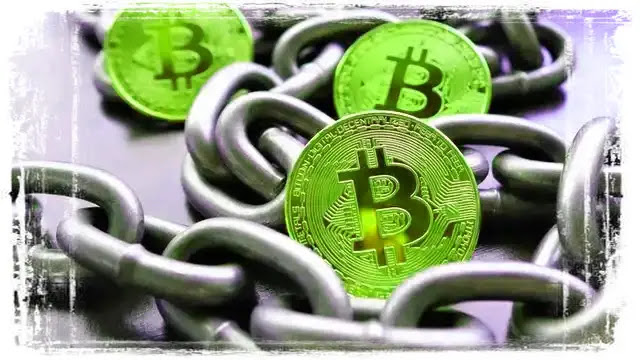What is Bitcoin? Here’s How BTC Works
Shaded form of payment, speculative bubble Is it the fate of financing? Here is some information about Bitcoin Enjoy the information about Bitcoin.
Bitcoin, the primary and most valuable cryptocurrency, has grown from a worthless coin to the most powerful coin in the world at present.
As of November 2021, bitcoin's market capitalization is over $1 trillion, outstripping the market capitalization of a number of the world's most valuable institutions — including Tesla, Berkshire Hathaway, and Facebook's Meta superstar.
Bitcoin, which is additionally called BTC, is unlike other assets that have reached such heights.
Rather than representing a percentage of the agency, bitcoin is a unit of virtual foreign money whose cost can range widely.
The distances are no longer navigated now with the help of the use of the financial fundamentals of a nationwide financial agency or institution, but with the help of the use of an encrypted ledger of virtual transactions that are collectively maintained with the help of the use of lots of computer systems.
You don't have to be a professional to understand how Bitcoin works.
While the basic blockchain era can get quite complicated, it is now no longer difficult to understand the basics. Here are some collectibles you should know about.
Definition of BTC: What is Bitcoin
Bitcoin, released in 2009 is a decentralized virtual currency that removes the need for intermediaries such as banks and governments, instead of using a peer-to-peer laptop community to verify purchases between users once.
Fiat cash (just like the US dollar for your financial institution account) is taken care of and controlled with the help of using the authorities for your transfer.
On the other hand, Bitcoin is powered by a combination of networking, software-driven cryptography, and technological know-how to pass obscure data that may be examined more effectively with the help of using the sender and receiver.
This creates foreign money sponsored with the help of using code preferably over things that have a monetary cost, such as gold or silver, or with the help of using acceptance as real in vital economic government.
Bitcoin has grown exponentially. In April 2011, the fee became $1. By the fall of 2021, it was at an all-time high as it jumped above $65,000.
The data is pulled from Google Finance and can be behind schedule by up to twenty minutes.
The information is only for informational functions and is no longer for buying and selling functions.
How do bitcoin boards
Each bitcoin (buy and sell code "BTC", although "XBT" is also used) is a laptop report that is kept in virtual pockets on a laptop or mobile phone.
Understanding how cryptocurrency works, enables to understand those terms and context a little bit:
Blockchain: Bitcoin is powered with the help of an open supply token called a blockchain, which creates a common public ledger of transactions that are set up in “blocks” that are collectively “linked” to save space.
This generates a permanent report on every transaction, and there is pressure on Blockchain as it holds over 10,000 cryptocurrencies that have accompanied Bitcoin.
Private and Public Keys: Bitcoin pockets hold a public key and a personal key, which are collectively drawn to allow the owner to digitally excite and reference transactions, providing proof of authorization.
Bitcoin miners: Miners independently verify a transaction using high-speed computer systems, usually within 10 to 20 minutes.
What is bitcoin mining?
Bitcoin miners - also called "nodes" - are the owners of high-speed computer systems that independently verify each transaction, uploading an entire "block" of transactions into the ever-growing "chain", which has a complete, public, and permanent chain report of each bitcoin transaction.\
Miners are paid in bitcoin, which incentivizes the decentralized community to independently confirm each transaction.
This miner-neutral community additionally reduces the risk of fraud or fake data being recorded, as most miners want to validate each set of records before submitting them to the blockchain, in a procedure known to me as "Proof of Plates".
How does bitcoin make money?
Bitcoin Cost Tracking the Call and Delivery Regulation – Due to the fact of waxing and calling back, there are a variety of fluctuations within the cryptocurrency fees.
Besides bitcoin mining, which requires a technical understanding and finances for high-performance computer systems, the maximum number of people who buy bitcoins as a form of speculation with foreign money betting that the market cost is variable and not fixed.
Storing Your Bitcoins: Dangerous Wallets vs. Safe Wallets
Bitcoins can be saved in virtual wallet styles:
Risky wallets: Digital foreign funds are held within the cloud on an alternative or provider basis, and accessed through a laptop browser, computing device, or mobile application.
Safe wallets: A portable encrypted tool that allows you to transfer currency from one wallet to another or from one person to another.
Basically, secure wallets are connected to the Internet.
Buying Bitcoin: Pros and Cons
With the splendor of speculative assets like Bitcoin, it is best first and foremost to be careful:
Bitcoin Cons
price volatility. While the cost of bitcoin has skyrocketed over the years, the fortunes of buyers depend largely on the timing of their financing.
Those who bid in 2017 while bitcoin fees were racing toward $20,000, for example, had to wait until December 2020 to improve their earnings.
And even though 2021 was a strong year for Bitcoin, it lost half its cost between April and July before the recovery period and reached new highs in November.
Hacking fears. While proponents say the blockchain era in the back of bitcoin is more stable than traditional digital cash transfers, secure bitcoin wallets have been an attractive target for hackers.
There have been some notable hacks, including information in May 2019 that more than forty million dollars worth of bitcoins were stolen from several really high-value funds owed on alternative cryptocurrency Binance (the agency has protected losses).
Limited (but increasing) use. In May 2019, large telecommunications company AT&T joined organizations including Overstock: com, Microsoft, and Dish Network in accepting bitcoin payments.
But those organizations are the exception, and now they are no longer the rule.
Not covered with the help of SIPC use. Securities Investor Protection ensures buyers up to $500,000 if a brokerage fails or the price range is stolen, however, this coverage does not block cryptocurrency.
Bitcoin execs
Private and fixed transactions at any time - with lower capacity fees.
Once you own bitcoin, you can exchange it anytime and anywhere, reducing the time and power rate of any transaction.
Transactions do not include non-public data such as a call number or credit card, eliminating the chance of customer data theft due to fraudulent purchases or identity theft.
(Keep in mind, though, that to buy bitcoins on an alternative basis, you'll usually first need to hyperlink your financial institution's account.
Great growth potential. Some buyers who buy and hold foreign money are betting that when bitcoin matures, more will accept it as real, and additional intensive use will follow, so the cost of bitcoin will increase.
decentralization. After the economic catastrophe and the Great Recession, few buyers are keen to embody a decentralized alternative to foreign money - a currency that is dealt with out of doors mainly through the manipulation of daily banks, the ruling government, or various 1/3 parties.
Should you buy bitcoin
read more: What is Blockchain Wallet
Bitcoin is a really speculative and unstable purchase.
It's really worth remembering that buying and selling stock can provide you with great wealth - and choosing stocks of associated institutions is usually much less volatile than investing in bitcoin.
(An unusual general rule is to allocate a smaller, more efficient slice of your typical portfolio of character stocks or a speculative property like bitcoin.)
Where can I buy bitcoin?
There are many ways to get bitcoin, but these are the maximum number that are not uncommon:
Bitcoin ATMs. There are more than 26,000 Bitcoin ATMs within the US (Look up the coin-operated ATM's radar to locate one near you.)
investment brokers. Robinhood has become the main underlying fund trader providing bitcoin and various cryptocurrencies.
Robinhood Crypto should be at its maximum, but now not all US states.
Trading, eToro, and Sofi Active Investing additionally provide the buying and selling of cryptocurrencies in the most remote US states.
Cryptocurrency exchange. There are some exchanges inside and outside the United States.
Coinbase is the largest cryptocurrency alternative within the United States, with access to nearly a hundred cryptocurrencies.




Comments
Post a Comment